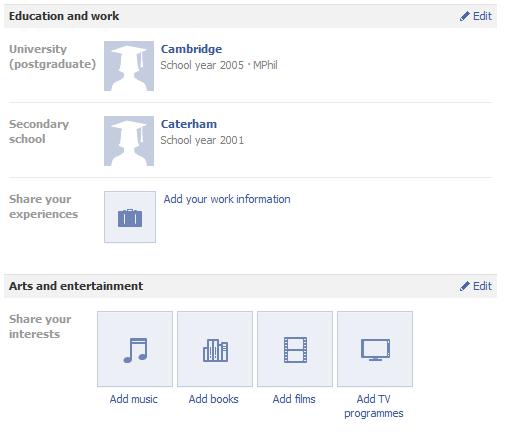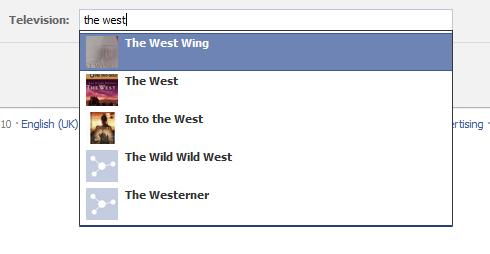Squeezing out originality on Facebook
369 words | ~2 min
Today Facebook launched a new version of the profile. The 'info' page is concerning.
Here's the kind of thing that's at the top:

And a little further down:

As you can see, I don't have a lot on my profile. But assuming I want to add a TV programme, I'm invited to pick from a pre-selected autocomplete list, like this:

In short, there's almost no room left for anything other than structured data. Back in the late middle ages, when I joined Facebook, putting daft things as your interests became the cause of a kind of strange one-upmanship, as did playing around with the few restrictions imposed by Facebook (like the fact that status updates used to have to start with 'is', which spawned a generation of updates of the kind 'John Smith is the fridge has broken again').
Now we're invited, all of us, to exercise as little lateral thinking as possible, and to make our responses fit into a series of easily-analysed fields. That's because it's easier to target ads when you limit the options to a set of things a computational parser can understand. Computational parsers are very bad at irony and wordplay. Perversely, Facebook's users (whose centre of gravity is still among twenty- and thirtysomethings) are very good at both.
The other thing affliuent, tech-savvy twenty- and thirtysomethings are very good at is punishing brands when they think they're putting their business considerations in the way of good user experience and service.
At the end of a year of grumblings about privacy settings and control over personal data, this is a small, but bad sign. Most of us will forgive these issues in return for a really good experience. But if it people come to feel that the ability to use and customize Facebook has been compromised by the site's willingness to package and sell their data to advertisers, they may turn away unexpectedly fast.
# Alex Steer (06/12/2010)